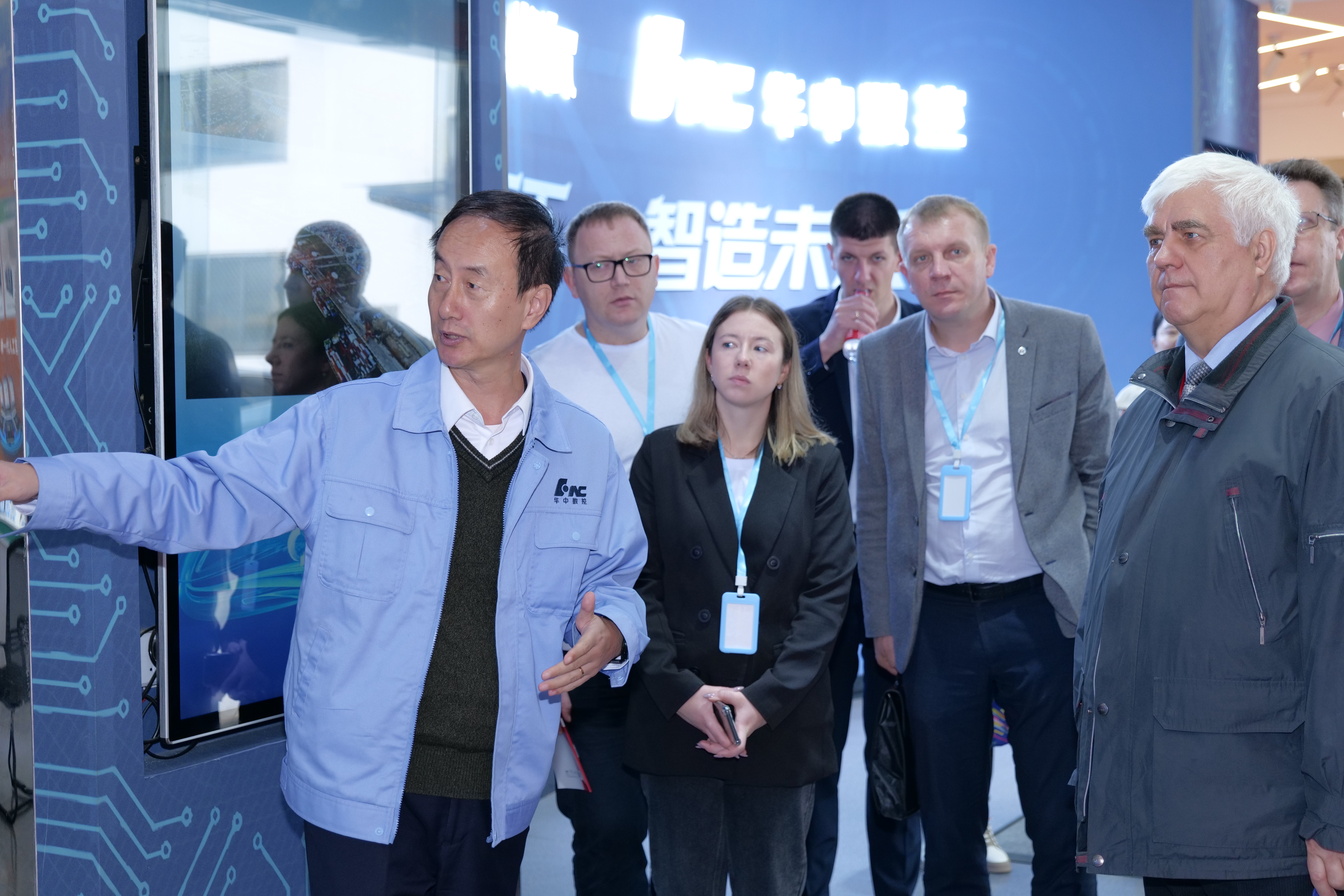By ZHAO Xiaojing & CHEN Dan
Hubei province in central China is positioning itself as a key player in science and technology, making substantial strides toward becoming the innovation hub of the region.
On?November?8, the recipients of the "Award of the Chinese Ambassador to the Russian Federation" began?to?have?a five-day themed tour of Hubei, exploring the region's scientific and technological progress, as well as its cultural marvels.

The?Experts?from?China?and?Russia?exchange?ideas.?(COURTESY?PHOTO)
In order to forge closer sci-tech cooperation, the Russian Union of Scientific and Engineering Associations (RUSEA) and Hubei Provincial Association for International Exchange of Personnel formally inked a cooperation framework agreement. Wu Jun, deputy director of Hubei’s Department of Science and Technology, underscored Wuhan's endeavors to establish itself as an influential science and innovation center. He hoped the agreement will serve as a catalyst for substantial cooperation and lay the foundation for mutually beneficial collaborations across various fields.
The Russian experts visited universities and high-tech enterprises for talent exchange. They took part in discussions and hoped for further collaboration, praising Hubei's scientific innovation and state-of-the-art laboratories.
"We have witnessed the achievements of Chinese technology enterprises and the development of Chinese universities. We hope to strengthen cooperation with Hubei in the fields of science and education," Drukarenko Sergei, first vice president of RUSEA, said.
At the Technology Talent Exchange Symposium, Sergei expressed the hope that the event would deepen Sino-Russian cooperation in science and technology, laying a solid foundation for Russian scientific resources and young scholars to collaborate and start businesses in Hubei.
Russian academician Lygdenov Burial D, a special-term professor at Wuhan Textile University, welcomed the Russian delegation and expressed his wish for strengthened exchanges. Burial applauded Hubei's accommodating and friendly research environment and the significant sci-tech progress in China.
The charm of Hubei for Russian experts extended beyond its technological advancements. They were also captivated by the region's cultural legacy. Exploring iconic landmarks like the Yellow Crane Tower and the Hubei Provincial Museum, they developed a holistic understanding of Hubei, a province with impressive achievements in innovative technology, rich cultural heritage, and favorable business and innovation environments across various industries.
The "," jointly established by the Chinese Embassy in Russia and RUSEA in 2020, recognizes young Russian scholars with outstanding contributions in relevant scientific fields.
The activity was hosted by the Chinese Embassy in Russia, Department of? International Cooperation, Ministry of Science & Technology and Department of Science & Technology of Hubei Province, executed by Hubei International Science and Technology Exchange Center and Hubei Provincial Association for International Exchange of Personnel.
The trio will conduct a series of experiments in fields such as life science, fluid physics, combustion science and materials science. Notably, this is the first time that fruit flies have been taken on a Chinese space mission as experimental subjects. What made scientists choose fruit flies? What experiment will they undergo?
